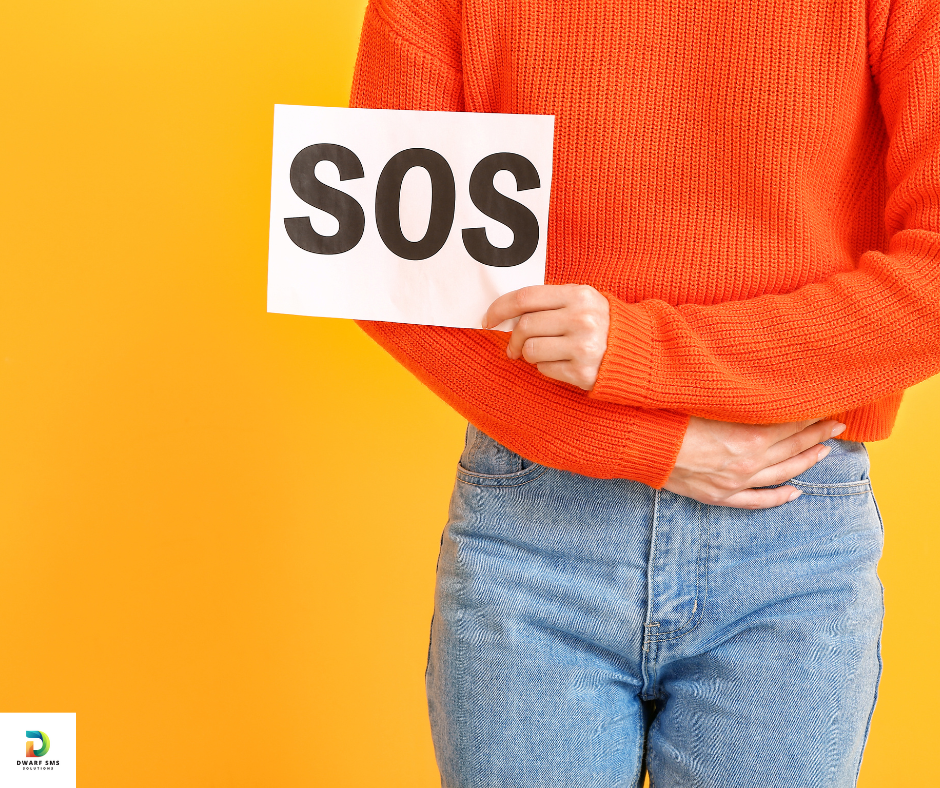
24 Jun
79
The Importance of SMS for Emergency Alerts and Notifications
Why SMS is Great for Emergency Alerts
Widely Accessible:
- Everyone Has It: Almost everyone has a mobile phone, so SMS can reach a lot of people. Unlike some apps that need internet or special downloads, SMS works on any mobile phone.
- Works Even with Poor Signal: SMS doesn't need internet access, so messages can still be sent even when the network is busy or weak.
Fast and Reliable:
- Instant Delivery: SMS messages usually arrive within seconds, ensuring people get important information quickly.
- High Open Rate: About 98% of SMS messages are opened and read, which is much higher than emails or other methods. This means people are more likely to see and act on the information.
Simple and Clear:
- Straightforward Messages: SMS messages are short and to the point, reducing the chance of confusion.
- Easy to Understand: The simple format of text messages makes them easy to read for everyone.
How SMS is Used in Emergencies
Natural Disasters:
- Weather Warnings: SMS alerts can warn people about hurricanes, tornadoes, and earthquakes, helping them to prepare.
- Evacuation Alerts: Authorities can quickly inform people about evacuation orders and safe routes.
Health Emergencies:
- Pandemic Alerts: During COVID-19, SMS was used to communicate lockdowns, vaccine schedules, and safety tips.
- Disease Outbreaks: Health agencies use SMS to alert people about disease outbreaks and provide prevention advice.
Security Threats:
- Amber Alerts: SMS helps spread the word about child abductions, giving descriptions of suspects and vehicles.
- Terrorist Threats: In case of a terrorist attack, SMS can quickly advise people to avoid certain areas and follow safety instructions.
Community Alerts:
- Utility Issues: Utility companies use SMS to inform customers about power outages, water shortages, or gas leaks, and when to expect services to resume.
- Public Safety: Local governments can send out information about road closures, safety hazards, or important community events.
Best Practices for SMS Alerts
Pre-Written Templates:
- Quick to Send: Having pre-written messages ready means alerts can be sent out fast.
- Consistent Information: Templates help ensure messages are clear and consistent.
Opt-In Systems:
- Voluntary Sign-Up: Encouraging people to sign up for alerts ensures messages reach those who want them.
- Keep Contacts Updated: Regularly updating contact lists ensures messages are sent to the right people.
Use Multiple Channels:
- Backup Methods: Combining SMS with other methods like email, social media, and loudspeaker announcements can cover more people.
- Extra Security: Multiple methods ensure messages get through even if one method fails.
Clear and Useful Messages:
- Specific Instructions: Messages should tell people exactly what to do.
- Simple Language: Using easy-to-understand language helps everyone get the message.
Conclusion
SMS is a key tool for emergency communication because it is fast, reliable, and widely accessible. By using SMS for emergency alerts and notifications, authorities and organizations can quickly get important information to people, helping to keep them safe. Even as technology changes, SMS remains a trusted and essential part of emergency response.
✖

